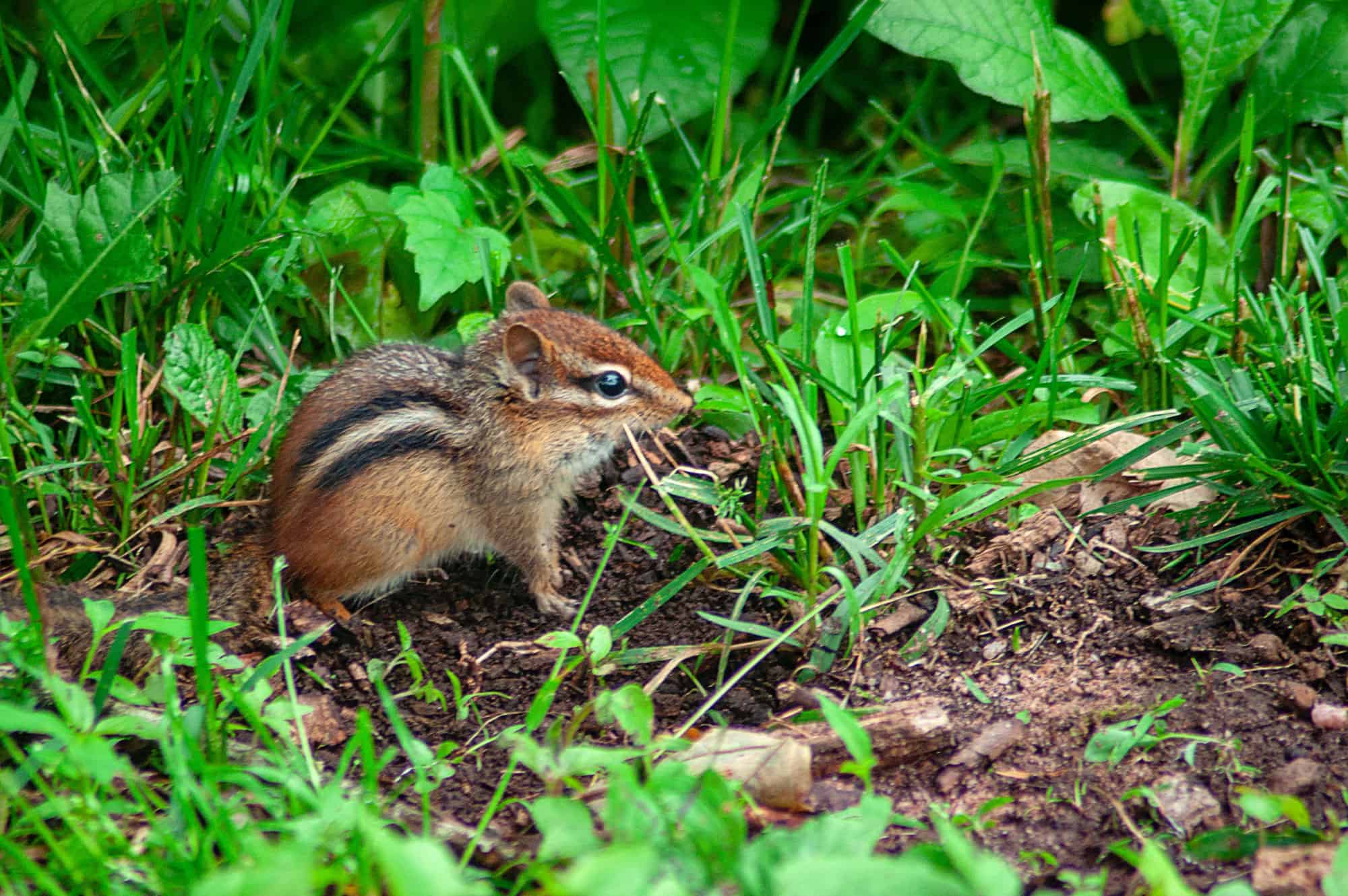
If you live anywhere in the Eastern half of the United States, you’ve seen chipmunks around. The tiny, striped critters belong to the squirrel family, and although they may be cute, they can be a nuisance. They can also cause serious damage to your property if they’re left unchecked. But how do you recognize signs of chipmunk damage?
Chipmunks multiply quickly, and they spend most of their time burrowing underground and foraging for food. One or two chipmunks might seem like cute visitors in your yard, but once they start to breed, their numbers can quickly get out of control. Their destructive nature can cause damage to your yard, structures on your property, and your garden.
If you’ve seen chipmunks around your yard, and you think you might have a problem, keep reading for our top signs of chipmunk damage.
Holes
The biggest sign you have chipmunk damage is the presence of the holes they leave behind in your yard. Chipmunks spend most of their time on the ground or burrowing underground, and they can tunnel quite extensively. Chipmunk tunnels can stretch between 10 and 30 feet long, and can extend to 3 feet underground. The entrances to the tunnels may be difficult to spot unless you have a lot of them.
The entrances and exits to chipmunk burrows are small holes between 2-3 inches in diameter. You won’t see any piles of soil around the hole, just the hole itself. In addition to the holes, you may also see damage from their tunnel systems along the foundation of your home or other structures on your property. They like to burrow close to trees, shrubs, or other structures for protection from predators, and your home falls into that category.
Chipmunk tunnels can also disrupt sidewalks, patios, and retention walls. Anywhere that they have burrowed, they will weaken the ground underneath the structure. If it becomes too weak, the structure can cave in on itself or become damaged.
Piles of Food
Another sign you may have an infestation of chipmunks in your yard is the presence of food piles. Especially close to winter, chipmunks will stockpile seeds, nuts, and grains in hidden areas so they can access them easily.
Chipmunks don’t hibernate in the winter, although they do enter a deep sleep state for long periods of time. They will wake up periodically to eat from their food stores before going back to sleep. You might notice signs of these stockpiles in your flowerpots, flowerbeds, or other spots in your garden.
Uprooted Bulbs
While chipmunks mainly eat nuts, seeds, mushrooms, and berries, part of their diet also consists of plant bulbs. If you have a garden full of plants, they may be in trouble with a chipmunk infestation. One of the first signs you have unwanted visitors in your yard will be that you find the bulbs of your flowers and other plants uprooted and chewed on.
Ruined Plants/Garden
Chipmunks will also eat vegetables and fruit, so if you have a small garden, watch out! One of the other major signs of chipmunk damage is a chewed-up garden. An infestation of chipmunks will lead to a ruined garden quickly, especially if the chipmunks multiply out of control.
Tracks or Scat
Finally, if chipmunks have managed to evade your sight, you may notice other signs they have made a home in your yard. At the entrances to their tunnels or nearby their food sources, check the ground carefully. Chipmunk tracks are tiny, with 4 front toes and 5 hind toes. You may also see chipmunk scat around as well. Their droppings are small and resemble rat or mouse droppings, which appear like tiny, oblong pellets that taper on the ends. The droppings are no bigger than a centimeter in length, so they can be easily missed if you’re not looking carefully.
How Do I Get Rid of Chipmunks?
Once you’ve determined that you have a chipmunk problem, they aren’t likely to go away on their own. If chipmunks have decided that your yard is safe and has enough food for them, it’s difficult to get them to move on. We always recommend calling expert wildlife trappers, such as Trap Your Moles, to trap and remove chipmunks from your property. However, there are a couple of things you can do to prevent the chipmunks from causing as much damage to your yard until you can get rid of them with the help of professionals.
Protect Your Foundation
The biggest threat that chipmunks provide to homeowners is the chance of a ruined foundation due to chipmunk burrows. You can purchase L-shaped guards to put around the edges of your foundation. These guards are designed to prevent dogs from digging up fences, but they can also work to deter chipmunks from tunneling underneath your foundation.
Protect Your Plant Bulbs
If chipmunks are chomping on your flower bulbs, you can plant them underneath wire mesh covers to deter chipmunks from digging. Make sure the opening is large enough for the plant to sprout through but small enough that chipmunks won’t be able to dig them up.
Call the Expert Chipmunk Trappers at the First Signs of Chipmunk Damage
Preventive strategies will only go so far if you have a chipmunk problem. The best way to get rid of chipmunks for good is to call in the experts with Trap Your Moles. We trap pest wildlife like moles and chipmunks so you can get your yard back from their damage. Get in touch with us today to set up your pest removal.

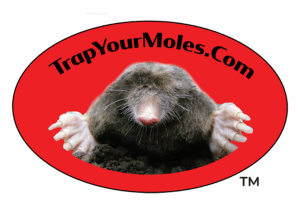
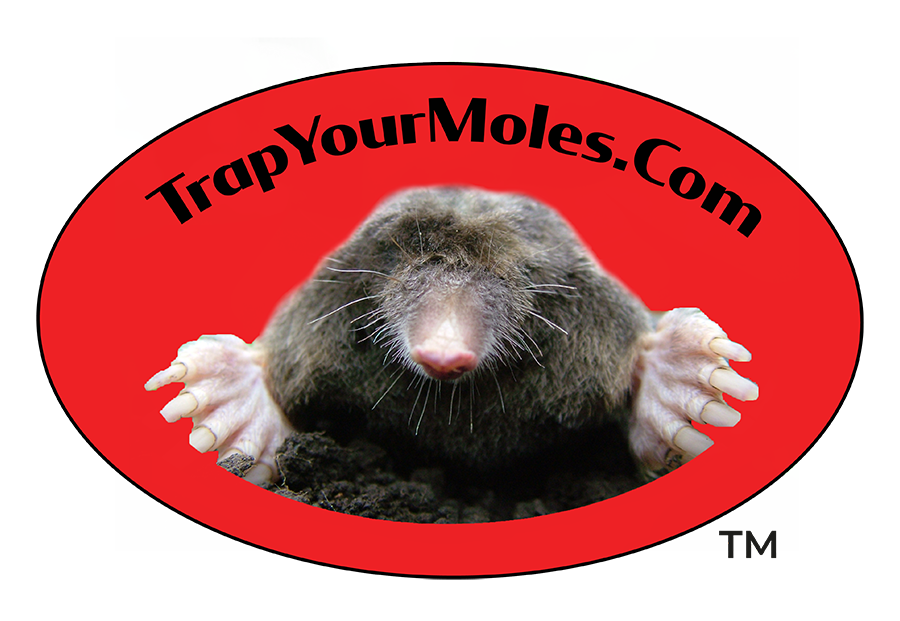
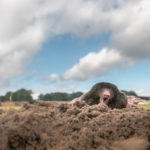

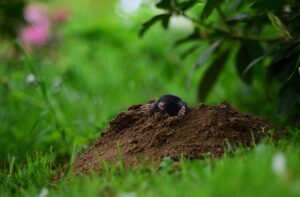
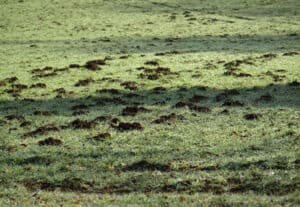


No comment yet, add your voice below!